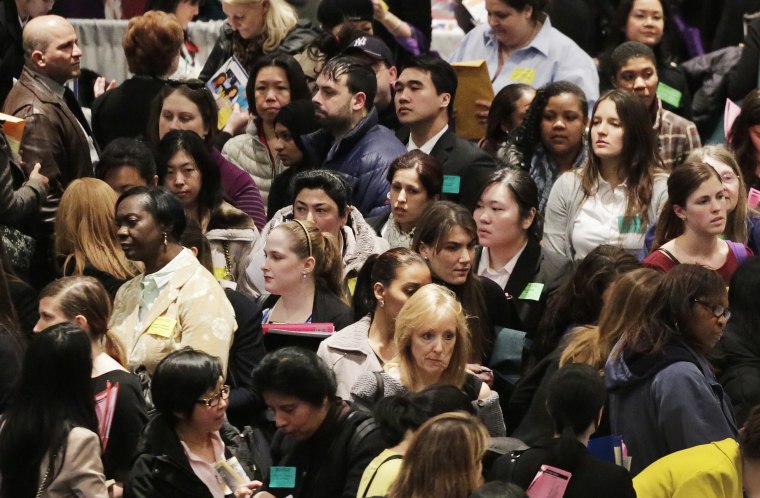The U.S. economy gained far fewer jobs than expected in March, adding to fears of a "spring swoon."
Employers added just 88,000 jobs last month, the Labor Department reported. That's well below the 190,000 figure that economists had expected. It's also a marked slowdown from the recent relatively robust pace of hiring. The six months prior to March saw an average of 196,000 jobs added per month.
The official unemployment rate actually ticked down to 7.6% from 7.7%, but that's not good news either. It happened because more people gave up looking for work entirely, meaning they don't get counted in the jobless tally.
In a worrying sign, labor force participation—that is, the share of Americans either employed or looking for work—fell to 63.3%, its lowest level since the "malaise" of the late 1970s.
And the long-term jobless crisis shows few signs of abating: 4.6 million American workers—nearly 40 percent of all those out of work—have been unemployed for 27 weeks or more.
Retail jobs decreased by 24,000, after increasing by an average of 32,000 in the previous three months. As Washington Post economics reporter Zachary Goldfarb suggests, that may hint that one major culprit for the disappointing numbers is a hike in the payroll tax, after President Obama and Congress failed to include an extension of the payroll tax cut in their end-of-year budget deal. With less money in their pockets, working Americans appear to have cut back on spending.
And there may be more bad news around the corner. Economists expect that growth and hiring will continue to slow over the next few months, as the economy feels the impact of the sequester—$85 billion in spending cuts.
Watch a Morning Joe and CNBC discussion on the latest jobs report below.
